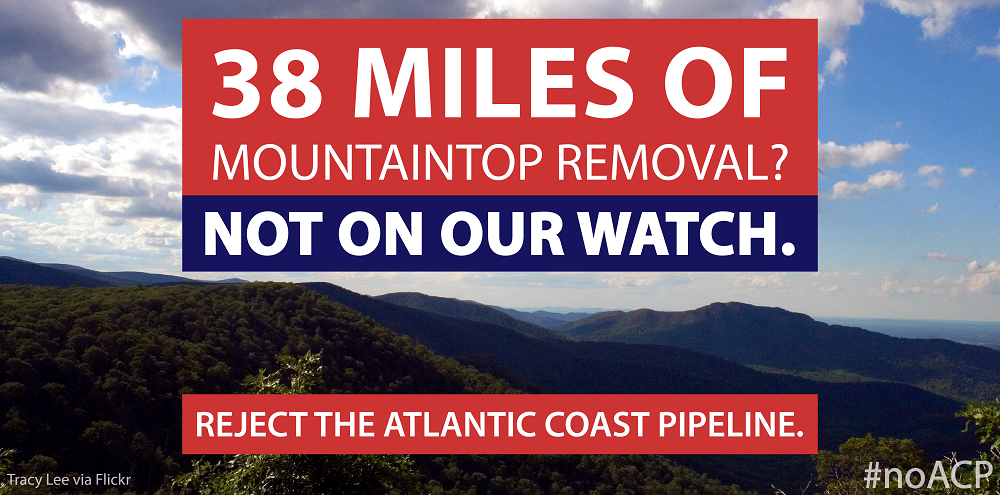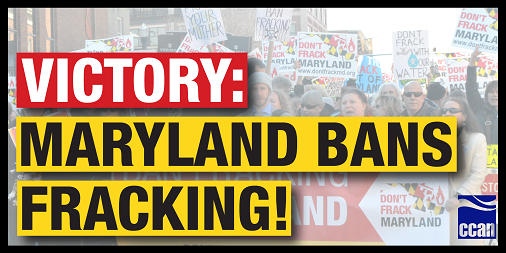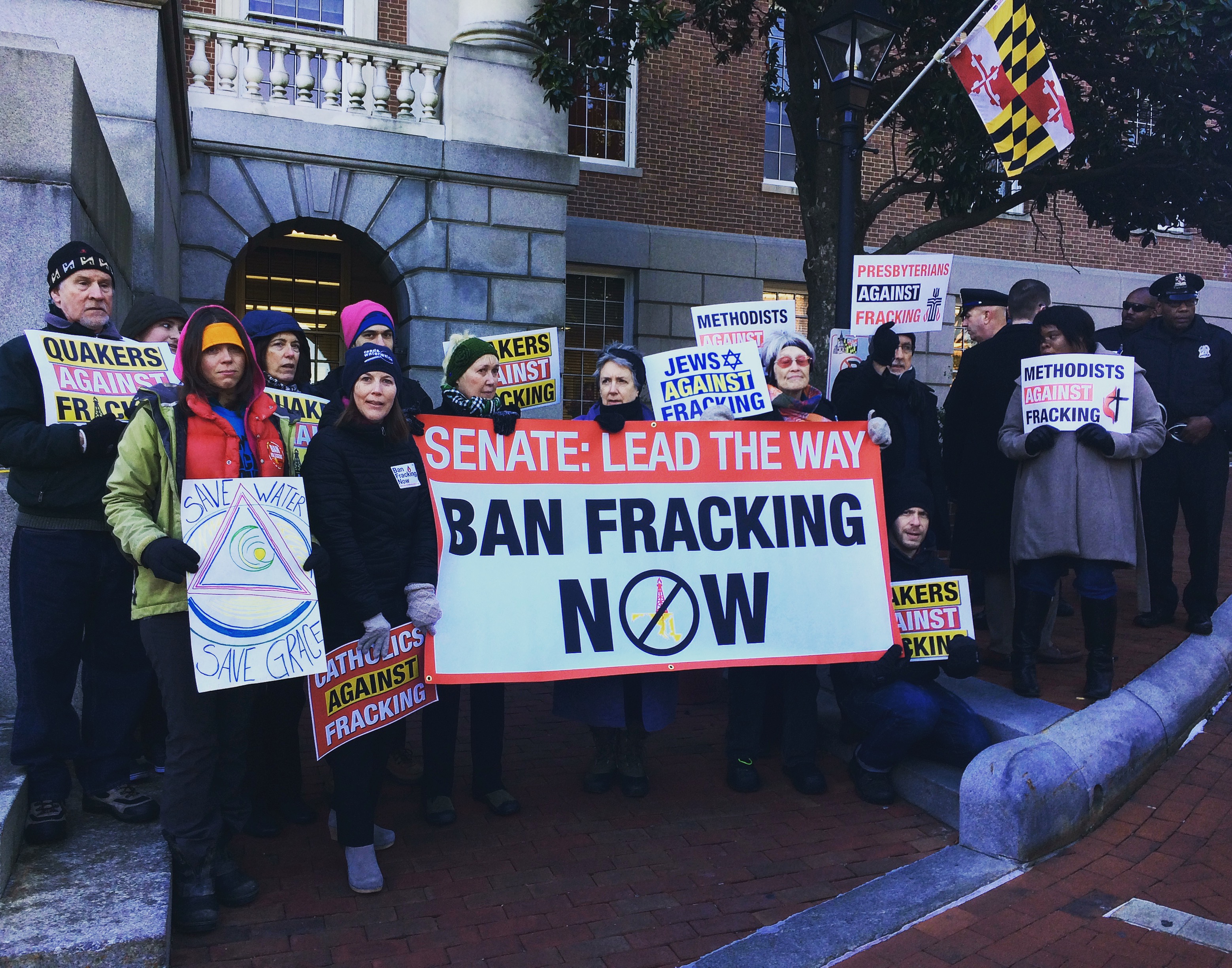Local Groups Propose Plan to Penalize Carbon Pollution, Rebate Millions of Dollars to City Residents, Invest in the Green Economy, and Create Tax Credits for Businesses
WASHINGTON, DC – Local faith leaders, economic justice advocates, labor organizers, environmentalists, and others gathered on the front steps of D.C.’s city hall on Thursday to unveil a dynamic “carbon fee and rebate” plan to reduce global warming pollution in the city of Washington, D.C. The plan would charge polluters for their carbon emissions and rebate the overwhelming majority of the revenue back to every resident of the District.
The groundbreaking plan, released in the wake of April’s massive Peoples Climate March in D.C., outlines how the District of Columbia can reduce carbon pollution in the city while increasing employment. The plan will also boost incomes in the District through a universal “carbon rebate” paid to every resident on a quarterly basis, including an enhanced rebate to low-income District residents. The plan would also make investments in green infrastructure throughout the city. Finally, the plan proposes using a small share of the carbon revenue to create a tax credit for local businesses.
“After months at the table, community leaders representing the vast majority of D.C. residents have put together a remarkably fair and effective policy to address climate pollution,” said Jeremiah Lowery, a Ward 4 resident and organizer for the Chesapeake Climate Action Network. “This policy would significantly reduce carbon pollution in the city, create a badly needed new source of income for residents, and grow the D.C. economy at the same time.”
On the heels of last autumn’s unsuccessful carbon tax initiative in Washington State, the D.C. campaign to put a “price” on carbon is backed by a unified alliance of labor leaders, environmentalists, and economic justice advocates. These include the D.C. Sierra Club, the Service Employees International Union Local 32B (32BJ SEIU), Interfaith Power and Light, the Working Families Party of D.C., Chesapeake Climate Action Network, Black Millennials for Flint, and more. The groups are unified under the “Put a Price On It D.C.” campaign.
The proposed policy would apply to natural gas and oil consumed in the District as well as carbon-intensive electricity and emissions linked to transportation (exempting public transportation). It would rebate 75% of the carbon revenue to all D.C. residents, invest 20% in green energy projects, and use 5% to reduce property taxes for local businesses. Legislation proposed by the group would be called “The Healthy Climate, Healthy Business, and Family Rebate Act of D.C.”
“Carbon pollution and climate disruption threaten the health of our children and the future of our community,” said Mark Kresowik, a Ward 4 homeowner, father, and Deputy Regional Director for the Sierra Club. “Our diverse coalition has worked together and found common ground to ensure polluters pay for their damage, help those who have been overburdened by pollution and underserved by economic opportunities, and make clean energy and transportation more available to families, workers, and businesses.”
Advocates released economic data showing how a rebate-oriented carbon fee – beginning at $20 per ton of CO2 in 2019 and rising to $150 per ton in 2032 – would benefit local businesses, workers, and household incomes in D.C. Advocates enlisted the services of the well-known D.C.-based think tank called the Center for Climate Strategies (CCS) to run sophisticated computer model runs based on these carbon fees for the District. For this purpose, CCS employed an energy/economic computer model from the highly respected company Regional Economic Models, Inc., and found that the mix of 75% rebate, 20% investments, and a 5% property tax cut for businesses produced maximum benefits while reducing carbon pollution by 23% in the city by 2032.
Said Josephine Chu, co-founder of local D.C. catering company, Zenful Bites: “Zenful Bites is proud to be part of the ‘Put a Price on It D.C.’ coalition. This policy will expand our customer base and make our city a healthier, safer place to live. We’re happy to help move this campaign forward for a more sustainable economy.”
Starting on day one, the money raised through carbon pricing would be returned to every D.C. resident through a quarterly rebate, with extra money earmarked for low-income residents. In just the first year of this policy, every family would receive over $500/year, and every low-income family would receive nearly $900 per year. This amount would steadily increase over time to more than $1,600 and $2,750 by 2032 for average families and low-income families respectively. Roughly 75% of D.C. residents would see their net incomes increase, with low-income residents seeing a rebate of roughly four dollars for every dollar they pay through the carbon fee. Only the wealthiest D.C. residents, who use substantially more energy than average households, would pay more through the fee than they see in rebate. This progressive rebate structure, combined with green investments and local business tax reductions, will ensure that D.C. reduces carbon while creating net job growth and boosting average incomes. This proposal, for example, would create new jobs in construction, food service, and other high-employment sectors of the economy.
“It is time to put the health and welfare of our communities before polluters’ profits, as communities of color, working families and immigrant communities disproportionately suffer the devastating impacts of toxic pollution and climate change,” said 32BJ SEIU member and private security officer, Judith Howell. “Our communities are targeted and our air and water are poisoned first. But we can work together to overcome and hold polluting corporations and their lobbyists accountable, so we can change the direction of climate change.”
“So many of our D.C. faith communities understand that climate polluters should pay for the damage they’re doing to our common home, and should take responsibility for the harm that their pollution is causing for our most vulnerable neighbors,” said Joelle Novey, Executive Director of Interfaith Power & Light (DC.MD.NoVA). “Looking forward, we anticipate that our country will ultimately put a national price on carbon. We’re getting started today by joining with all people of goodwill in the District to make climate polluters pay.”
See our fact sheet here for more information.
###










